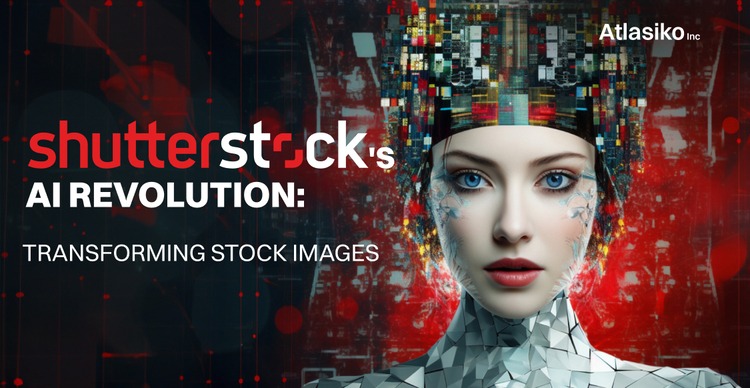For two decades, the Shutterstock company has been a household name in the media world, providing a treasure trove of stock images for publications worldwide. In the present, Shutterstock is developing, and introducing groundbreaking AI image editing capabilities powered by OpenAI's DALL-E 2. This move comes as competitors like Adobe Firefly 2, Midjourney, and Bing Image Generator, among others, are changing the landscape of stock imagery.
Shutterstock's new AI image editing features are set to redefine the way users interact with their extensive image library. Even free trial users will be able to add a personal touch to stock photos, enhancing and modifying them with ease. The enhancements include extending borders, altering colors, removing items, switching aspect ratios, and adding text and shapes for social media and video platforms, such as YouTube.
Tiffany Gilron, Director of Product Marketing at Shutterstock, explains, "We're allowing you to make stock your own and personalize it. So our library of 750 million assets essentially becomes infinite, and whatever's in your head you can find it on Shutterstock."
Here are the introduced features, including:
- Magic Brush: It can modify images by brushing over areas and describing changes.
- Variations: Easily generate alternate options for stock or AI-generated images.
- Expand Image: Broaden the view of an image and reveal more of the scene.
- Smart Resize: Automatically adjust the image's shape to match desired dimensions.
- Background Remover: Replace or remove backgrounds with ease.
- AI Image Generator: Create visuals in seconds by describing your vision.
Shutterstock acknowledges that these features are in Atlasiko newsbeta, and some edits may take a few seconds to generate. However, the company is actively exploring partnerships and new AI models to ensure the best user experience, despite the occasional hiccup.
To access these features, users can click the "Edit" button on the lower right-hand corner of the image they select. This transforms the image into a virtual "dark room," offering a sidebar with various editing tools. Users can choose the tools they need, describe changes, and select from the options generated by AI.
All these are for users to empower them from publications to brands, to customize images to meet their specific requirements, whether for digital or printed materials, websites, or social media.
What sets Shutterstock apart is its responsible and ethical approach to AI. These AI features can be applied to existing Shutterstock imagery provided by their paid creative community, ensuring contributors are compensated for their work. Users can download both the source image and the AI-edited version, ensuring fair compensation.
"We're very strong on responsible, ethical AI," emphasizes Tiffany Gilron. This approach is vital as AI companies face potential legal challenges related to using contributors' work for training AI models without proper compensation.
However, Shutterstock is stringent about not accepting AI-generated or edited content for licensing on its platform. This safeguards contributor's intellectual property and ensures artists receive fair compensation.
Furthermore, Shutterstock is cautious about the use of AI on editorial images, such as those of public figures or news events, to prevent potential misuse and disinformation.
As a member of the Content Authenticity Initiative, Shutterstock is committed to promoting transparency and truth in digital content. The company plans to integrate the Coalition for Content Provenance and Authenticity (C2PA) standard into its AI capabilities to protect the integrity of its content.
Shutterstock's stock price reflects these forward-thinking initiatives, with a modest increase of less than 1% following the announcement. This move demonstrates Shutterstock's determination to adapt and lead in an ever-changing industry driven by the power of AI.
To discover more about breakthroughs in Artificial Intelligence, follow Atlasiko news!







